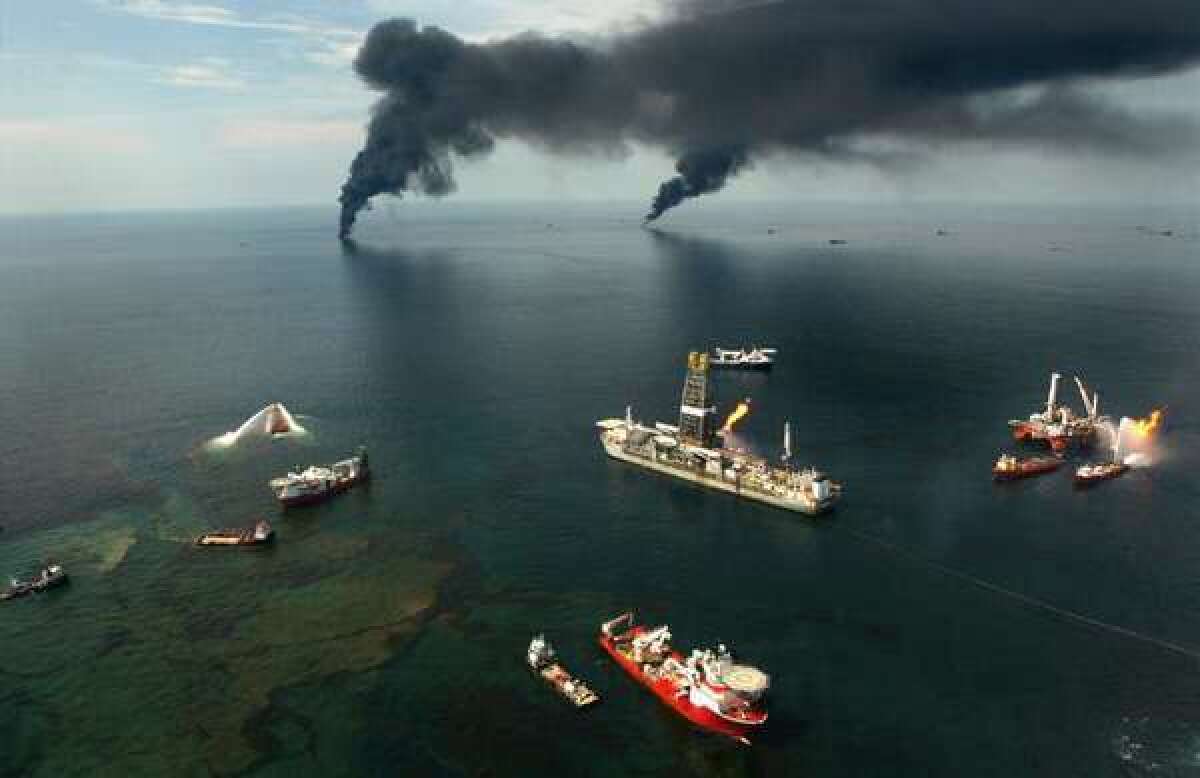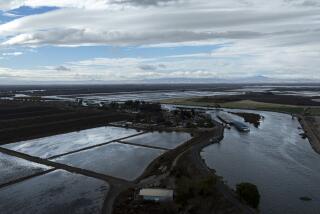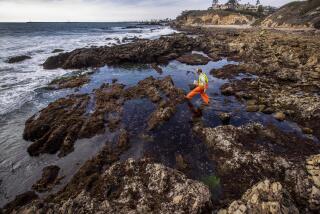Oil dispersants must be checked before use in waters, ruling says

- Share via
Environmentalists won a big victory for marine animals this week, with a court ruling that requires the government to determine whether dispersants used to to break up oil spills are harmful to endangered species before the chemicals are used in federal waters off California.
The settlement in District Court in San Francisco requires the Environmental Protection Agency and the U.S. Coast Guard to analyze the impacts of dispersant products, which are used to diffuse oil spills into small droplets. The small oil droplets are then consumed by marine microorganisms and the spill is more quickly diluted.
The use of dispersants was more closely scrutinized after the 2010 Deepwater Horizon spill in the Gulf of Mexico. The use of the dispersant Corexit 9527 produced complaints of skin and respiratory distress among cleanup workers stationed on the water. Researchers are now studying the impacts of dispersants on marine life, which some scientists suspect cause oil and the dispersant chemicals to accumulate in the sea’s food web.
The settlement — with the groups Center for Biological Diversity, Surfrider Foundation and Pacific Environment — uses the Endangered Species Act as the fulcrum for requiring analysis of potential impacts to protected species before authorizing the California Dispersants Plan.







